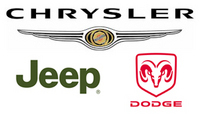Dr. Z shifts quickly into reverse on Chrysler
 |
DETROIT, Feb 14, 2007; Poornima Gupta writing for Reuters reported that DaimlerChrysler Chief Executive Dieter Zetsche was all over American television last summer promoting the strength of German engineering in Chrysler vehicles in a high-profile advertising campaign.
Six months later, Dr. Z., as he became known, was back in Detroit on Wednesday with a sharply different sales message -- Chrysler itself may be on the block.
Zetsche, who ran Chrysler for five years before taking over as head of its parent group, surprised analysts by backpedaling from his stance of just three months earlier, saying that all options for the U.S. group were now open.
It was a dramatic reversal for the walrus-mustached CEO, a popular figure in Detroit for engineering a turnaround that began in 2001 and briefly made Chrysler the envy of the struggling American auto industry.
Zetsche took DaimlerChrysler's top job last year with a pledge to drive synergies even deeper between Mercedes and Chrysler before an inventory glut pushed Chrysler to a $1.4 billion loss last year.
"That's the irony. In 2001, he came and he did steer the ship," Alex Rosten, an analyst with AutoObserver.com, a unit of industry tracking service Edmunds, said of Zetsche.
Zetsche surprised analysts by saying DaimlerChrysler had come to the conclusion that it should study a spin-off or sale of Chrysler, even as the automaker cuts 16 percent of its work force.
"This was a process, this process is under way and obviously at the beginning of the process, you have the different point of view than at the middle or end of the process," Zetsche said, when asked about his change in stance.
NO PLATFORM-SHARING
In another surprise, Zetsche said there were no plans to share vehicle platforms between Mercedes and Chrysler.
Many analysts have argued that such "platform-sharing" has far greater cost-saving potential than sharing individual parts and some had expected Chrysler to outline new plans for such cooperation this week.
"That's the part that gives me some uneasiness about the long-term future of Chrysler," said Erich Merkle, senior auto analyst with IRN Inc.
Chrysler, which relies more heavily than rivals on sales of trucks and sport utility vehicles, aims to operate as a smaller company with its focus shifting from trucks and SUVs to fuel-efficient cars.
The company outlined a revamped product plan that targets the introduction of 20 all-new vehicles and 13 refreshed vehicles through 2009, including new entries in the minivan, pick-up truck and certain rear-drive full-size segments and the launch of a hybrid version of its Dodge Durango SUV.
Chrysler also plans to expand into new commercial vehicle segments, including heavier trucks.
In a cost-cutting move, Chrysler said it would reduce the number of vehicle platforms it uses to seven from 12 by 2012.
Analysts say Chrysler's move to reduce its reliance on trucks and SUVs is overdue.
"The same factors that made Chrysler a darling of the public and press as recently as two years ago -- trucks, SUVs and rear-drive sedans -- are the same factors that have hurt its fortunes recently," said Jack Nerad, analyst with Kelley Blue Book's kbb.com.
Rosten said he expected Chrysler would look to kill off some of its models, including the retro-styled PT Cruiser, the Dodge Magnum wagon and the recently launched Chrsyler Aspen.
Chrysler has said it will close the Delaware plant that makes the Aspen and the Durango, a slow-selling SUV that sat on dealer lots for an average of six months.
The restructuring plan for Chrysler, which the company has been preparing for months, is the second such effort since the 1998 merger that created DaimlerChrysler.
Analysts have said the merger never lived up to its initial promise. When asked about the success of the merger and whether it was a good idea, Zetsche pointed to successes in sharing technolgy and bringing lower-cost manufacturing to Mercedes.
But he stopped short of predicting the future potential of the 9-year-old deal.
"It's very obvious that there have been lot of benefits for both sides," Zetsche told reporters.


